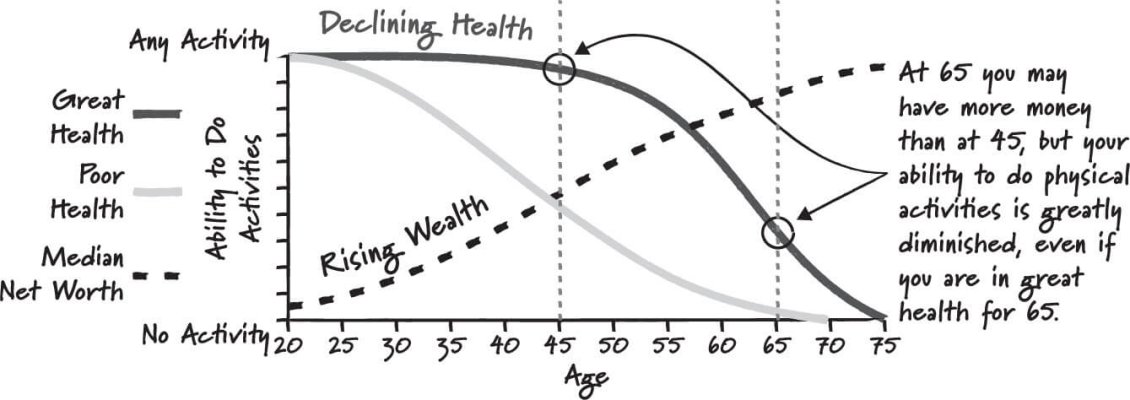3. I disagree that your prime years are 45-60 and you go downhill rapidly after that. I believe you can spend time and/or money to help maintain your good health, and people should do that. My wife and I did a mini triathlon last year in the Everglades, but I also see quite a few of my peers who cannot walk up a flight of stairs. I am 71 right now, and we kayak, bike, or hike on a daily basis. We also do Bikram Yoga 4 days each week. (google it)
That's great, man, good to hear. I'm 59 and not half that active. Good for you.
I think generalizations based on age are dangerous to our psyches. There is good research showing that if people
believe they will deteriorate as they get older, that belief becomes a self-fulfilling prophecy. And conversely, if they don't believe that, it doesn't happen. So our beliefs about aging (internalized agism?) play an important role in our fate.
I'm much healthier now than I was a decade ago. I know there will be a point where things began to fall off (hopefully not literally), but my sense is, that won't happen for a decade or more.
People always throw out averages (e.g., average age when you "decline"), but it's important to remember averages are gross oversimplifications of reality. They conceal huge variability in individual outcomes.
Also, I think "decline" depends very much on the activity we're talking about. I probably won't be doing high-difficulty mountain bike trails when I'm 70, for instance, but I don't care, because I'm not interested in that, even now. Can I walk around the block? Can I lift a 50 pound sack? Can I ride my bike? Can I hike a moderate trail? That's all I need to do.
The other stuff I'm interested in (e.g., reading and writing) is more a question of intellectual fortitude, not physical. Everything seems to get framed in physical terms. That's important, no doubt, but I'm more concerned about cognitive decline than physical. If I'm hobbling a little when I'm 80, that's fine. If I can't read or write, I'm going to be disturbed.
I'm better off than you - I've got 9 weeks to live it up.
I'll save you a spot on the shuffleboard court.

